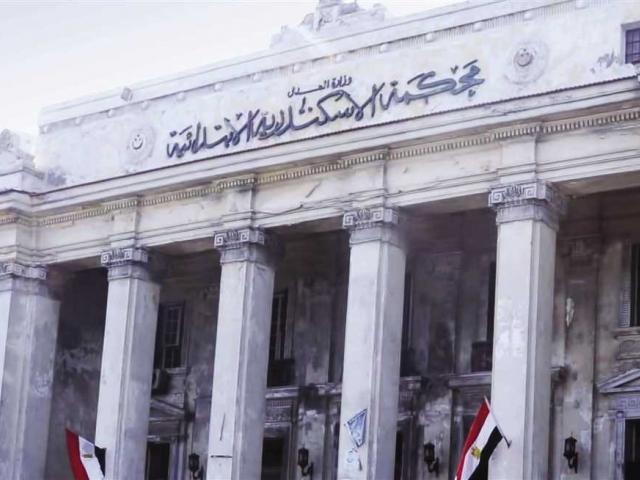
Alexandria Criminal Court Acquits EIPR Client of Murder, Show of Force, and Unauthorised Demonstration Charges
Press Release
Yesterday, 22 October, the 13th Chamber of the Alexandria Criminal Court acquitted Abdullah Osama Abdel Aal, a client of the Egyptian Initiative for Personal Rights (EIPR), in the case known in the media as the 'Dekheila massacre.' The court thereby overturned a previous ruling issued in absentia against Abdel Aal, in which he had been sentenced to ten years in prison for participating in a demonstration that took place in 2014, when he was a child.
The acquittal verdict for Abdel Aal was issued during the retrial of Criminal Case No. 24546/2014, Dekheila Criminal Court, registered under No. 6827/2014, West Cairo. In this case, the prosecution charged Abdullah with several offences, including murder, show of force, joining a group established in violation of the law, acquiring and possessing weapons, ammunition, and explosive materials, and organising and participating in an unauthorised demonstration.
While welcoming the acquittal of its client, EIPR notes that he spent five years in pre-trial detention in connection with this case, in a flagrant violation of the law. EIPR demands the implementation of the consistently unenforced provisions of the Criminal Procedure Law, which set a maximum of two years for pre-trial detention throughout all stages of the proceedings, as well as the provisions of the law that prohibit the prosecution of a person for the same act twice (protection from double jeopardy), in accordance with the legal and constitutional rights to a fair trial.
The events of the case date back to 2 May 2014, when Abdullah and 29 others from the Agami area were arbitrarily arrested and charged with gathering, thuggery, and demonstrating without a permit, and were added to to the investigation that included many other names . Abdullah and the other defendants were arrested following the killing of two people in the context of clashes between demonstrators and security forces at a protest in Alexandria on the same day.
On 25 June 2014, the Public Prosecution's Office ordered the referral of a number of minors, including Abdullah, to the Juvenile Court. The Juvenile Court sentenced him to five years' imprisonment in the first instance in Misdemeanour Case No. 592/2014, a sentence that Abdullah appealed against (Appeal No. 7157/2015). At the hearing on 7 March 2015, the court ruled to accept the appeal petition provisionally and amended the appealed sentence, placing the defendants on probation for three months, from 7 March 2015 to 7 June 2015.
Although Abdullah was tried before the Juvenile Court, on 9 March 2015, the Chief Public Prosecutor of West Alexandria ordered the referral of Abdullah and 61 others to the Criminal Court. The Criminal Court heard the case in the absence of Abdullah and others who had been released. On 17 September 2019, a verdict was issued in absentia against Abdullah, sentencing him to 10 years in prison, of which he was unaware.
At the end of 2019, he was arrested in connection with a new Case No. 1413/2019, (Supreme State Security Investigations) , an investigation connected to mobilisation for demonstrations called by contractor Mohamed Ali. In 2020, he was released on precautionary measures. When Abdullah's criminal record was examined for his release, it was then discovered that a 10-year prison sentence had been issued against him in absentia. He therefore had to file a petition for a retrial while remaining in detention. Forty-six others accused in the same case filed the same request. The Alexandria Criminal Court postponed the case several times over a period of five years, awaiting a ruling on Cassation Case No. 5392/1990, which was also appealed by three other defendants who had been sentenced in person in the first trial.
At the hearing on 19 October, after the cassation ruling was issued, Hamdi Khalaf, a lawyer with EIPR, argued in his defence of Abdullah that the defendant's arrest was invalid because there was no evidence of ‘in flagrante delicto violations’ (being caught in the act) and because the statements of the police officers contradicted themselves in addition to their failure to demonstrate the presence of material elements of the actual crime in the case file. He also argued that there was no intent to kill, and that the defendant did not possess or acquire any weapons. The EIPR lawyer also insisted that a person cannot be tried twice for the same act, citing a previous ruling on charges of gathering, thuggery, and demonstrating without a permit, the issuance of a ruling by the Juvenile Court in that case, and the failure to question Abdullah on the charges of murder and show of force.



